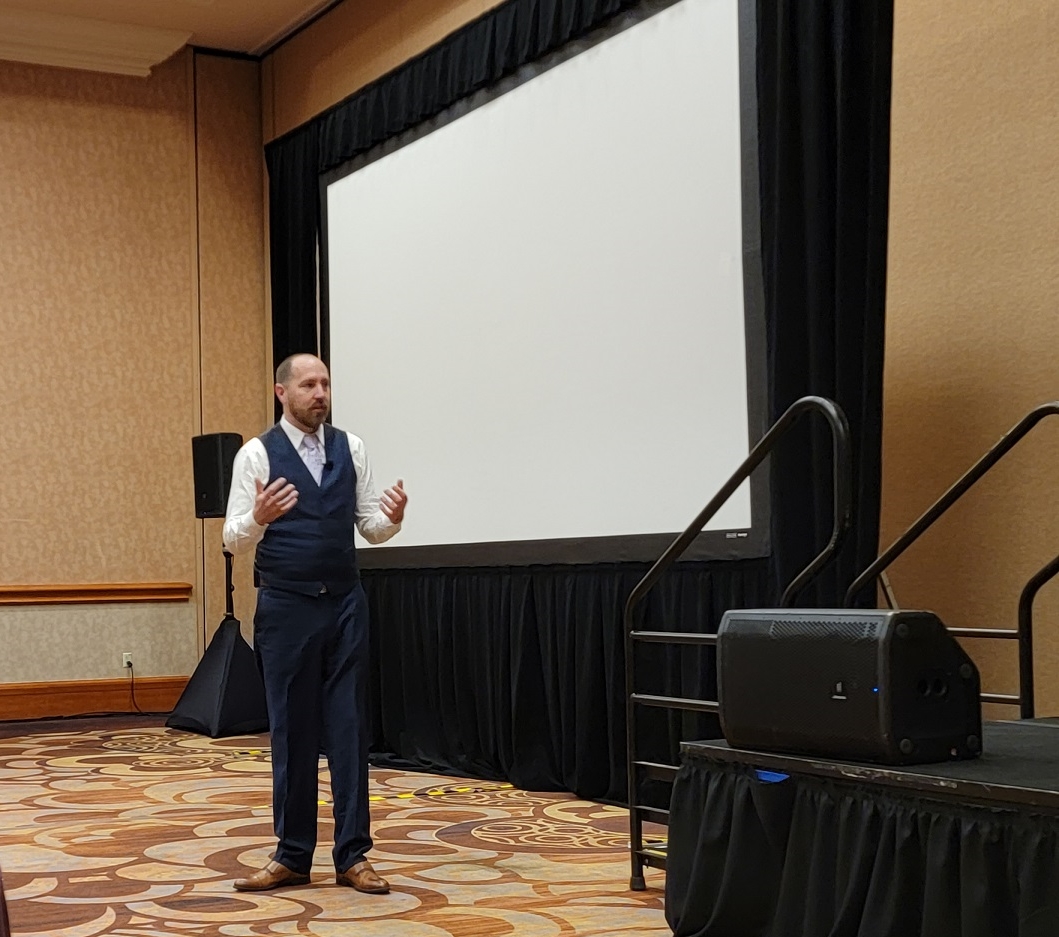International standards for electronics recycling enable recyclers around the globe to buy and sell products for reuse or for recycling while providing assurances and confidence for their customers. Those standards are more relevant than they’ve ever been, and they’re not going anywhere any time soon, attendees learned during The Role and Rollout of International Standards session March 23 at ISRI2022.
“Particularly when it comes to management systems, especially when it comes to environment, health and safety (EHS), I would argue not only are standards still relevant, but they’re growing almost exponentially in relevance,” says Darrell Fleming-Kendall, executive director of RIOS™ (the Recycling Industry Operating Standard).
According to presenters, several factors account for the rise in relevance of standards for electronics recycling:
- In 2022, the world is smaller than ever thanks to technology.
- The next generation of workers is also more selective. Gone are the days when employees are happy with just bringing home a paycheck. Many want to feel valued for their work, and they also want to work for mission-driven organizations.
- Being certified shows a company wants to be a good partner within the community it occupies.
Moderator Rike Sandlin, founder and CEO of Rivervista Partners, provided basic definitions of the terms standards, management systems and certifications. Standards are a documented set of requirements, management systems are how a company implements their standards across their business, and certification is a third-party verification of a company’s practices. These terms tend to be used interchangeably, but they shouldn’t be, Sandlin says.
RIOS™ is a quality, environmental, health and safety (QEHS) management system designed for the recycling industry. Designed on the well-established principles of the plan-do-check-act model, RIOS™ requires that companies and facilities evaluate QEHS risks that exist within their operation, mitigate them, evaluate the success of the programs, and improve them over time.
“All of you, by your presence here, understand a lot of the things that ISRI provides, including the health and safety program,” Fleming-Kendall says. “Tony [Smith, ISRI’s vice president of safety] and his team with the health and safety resources, David Wagger [ISRI’s chief scientist and director of environmental management], with the environmental resources, they create tools for you. RIOS™ is the toolbox that helps you organize and maintain those tools and keep them sharp and ready to use when you need them.”
More than 150 recyclers worldwide have RIOS™ certification. Fleming-Kendall notes that RIOS™ by design is applicable for recyclers of all commodities.
Roger Greive of Sustainable Electronics Recycling International (SERI), the governing body for the Responsible Recycling (R2) Standard for Electronics Recyclers, joined Fleming-Kendall and Sandlin on the panel. R2 is currently one of two accredited certification standards that exists, the other being e-Stewards®’ Standard for Responsible Recycling and Reuse of Electronic Equipment©.
Going through the certification process makes a company better, Greive says. “By imposing those standard operational procedures inside your company, the company gets better,” he says. “The new normal is a company that operates better, is safer for their employees, has more regard for the environment, protects data, etc. It’s the natural result for fulfilling the requirements.”
Greive notes there are 14–16 billion mobile devices in the world right now. On average, 900 million cell phones will be made per year over the next four years, he adds, which means people will be getting rid of their old phones. Having standards helps ensure those phones end up in a new person’s hands instead of a landfill.
“There’s a need to not only control the environmental aspects but to look at the digital divide and address those issues of making sure that those devices, if possible, go to a new owner rather than being ground up into component elements again,” Greive says.
R2, e-Stewards®, and RIOS™ all have international reach. There are R2 certified companies in 34 countries around the world. Facilities in countries across the globe have also adopted RIOS™. The standards are developed to be geographically agnostic so they can be applicable in any country.
“Everybody understands that it’s important for employees to be able to go home at the end of the day in the same condition they came into work,” Fleming-Kendall says. “Everybody understands that destruction of the environment is a bad thing. The goal is to raise the level of performance across the industry. We work facility by facility to improve the way they’re operating, with the ultimate goal of raising the bar for everybody.”
Photo courtesy of ISRI.
Additional Resources













